
Arnett, Robert Williams and Kevin Howard
Robert Fulton Williams, the father of Delores G. Williams Howard and maternal grandfather of the Howard Brothers, was born, March 1, 1913 in Martinsville, Virginia. He said that his memories of life began when he heard the noise of a coal tipper when he was two years old. “My family was traveling from Martinsville to Gary, West Virginia to find work in the coal mines and I was awakened by the loud, rough sounds of that machine grinding up coal. That’s the first event I can remember, however I have remembered everything since.”
His mother, Fannie Kate Hairston Williams, had a brother who worked in the mines in Gary. The family, George Wesley Williams, father, Willie Mae, daughter and Robert, lived with their relatives until George found a house. The Williams were among many Negro families that were trading the hard life, working on farms, for the harder but steadier paychecks that were offered by the booming coal industry/steel/railroad industries. They joined immigrant families from Europe, who were being met at Ellis Island in New York to supply labor for industry, raise gardens, hogs, chickens and children. He said that his family was never hungry.
During the days surrounding WWI, Gary mines were owned by U.S. Steel. In addition to coal mining, there were coke ovens that turned the coal into coke, sent to the steel mills of Pennsylvania and Ohio. U.S. Steel was a major American company and it was a boom time with lots of jobs. Before the rise of the United Mine Workers Union (UMW), miners were industrial slaves, trapped into hard jobs. "A typical day started at six am., workers ate their meals underground and since it was more important for the companies to get the coal out of the ground than the men, sometimes it would be nine-thirty pm. before we climbed out of the shaft. John L. Lewis and the UMW came along, negotiated and organized conditions for miners that we’d never dreamed of."
Because of the UMW contract bidding, mine workers were able to get eight hour work days, vacations, better wages, health care benefits and, for the first time, miners retired with pensions and could afford a reasonable life. "These were benefits that we had never even dreamed of,” he said. "Mining towns of the early twentieth century surrounded company owned houses and stores. Company doctors delivered babies in houses that had no water or electricity, until the 1920’s."
His first recollections of school surrounded following his sister, Willie Mae, to school, refusing to leave and since he knew how to read at age four, the teacher let him stay. Although Willie Mae was four years older, she was not a motivated student and Robert reached the ninth grade before her, thus winning a bicycle from his father, who challenged the siblings.
Robert was bright, studious and a fast learner. However his mother, Fannie died in 1928, when her was fifteen and he was left without a parent to push educational invitations after his graduation in 1930. Instead of going to college, he jot a job in the mines, spending twenty-three hard working years, before retiring in 1952.
In 1932, at the height of the U.S. Depression, he left Gary to find a job at an active mine in Amonate, Virginia. There he met, married and had a daughter with Myrtle Hairston, three years younger. The couple stayed together for three years before separating and Robert took his daughter, Delores, as his responsibility. He got help from his in-laws, John and Nannie Hairston, in raising Delores. He says that they had lots of fun together and loved the same Gary Colored Schools that her father had graduated from twenty years earlier.
Delores did go to Bluefield State Teacher’s College, where, in her first year, she met, George Howard, a senior in chemistry and WWII veteran. They married, February 25, 1950. Robert’s first grandson, Arnett (me), was born in September, 1950 and the newlyweds moved to Columbus, Ohio in 1951.
Robert retired from the mines in 1952 and moved to the West Virginia state capital, Charleston. He collected his miner’s benefits and worked part time custodial and home maintenance jobs. His joy was traveling to Columbus to visit his daughter and four grandson’s.
I first remember my grandfather’s friendship when he would take me back to Charleston when I was six. His eyesight had dimmed, due to his decades in dark, coal mines and his first lessons to me were about reading road maps, highway signs, traffic lights. I think that his lessons were the best instructions in life; have the vision to see things down the road.
Throughout the 1950’s and ‘60’s, our travels together included trips to Cleveland to visit Aunt Millie Booker, whose husband Reverend Tom Booker, had established the Cleveland Church of Christ in the 1920’s. They lived at Central Avenue and Twenty-Fifth Street in Cleveland’s Roaring Thirds community of Black citizens. At Aunt Millie’s, I remember sleeping on a straw mattress and the timeless collection of ceramics and glass objects that all African-American women collect and store on shelves and behind glass.
One trip that we made together to the city during the summer of 1966, occurred on the day that the Hough riots started. That summer, Bobby Hebb had a hit with the song, Sunny and the city howled with the wails of police and fire emergency vehicles, along with Ohio National Guard troops. Windows were smashed, shots fired, buildings burned and races engaged in death clashes for nearly a week in east side neighborhoods, as I wandered the curious streets of Kinsman Avenue and Shaker Heights, alone.
Before he permanently moved to Cleveland in 1965, Grandad had lived with us in Plain City, Ohio; a surrogate to replace my mother who died in 1963. We had a household like the television show My Three Sons; six men of three generations breaking the roles of a traditional family. Grandad got us up and off to school, he reinforced with a firm, but gently hand, the lessons that we had started to learn about cooking, house cleaning, laundry and manners.
On our many trips home from the laundromat in Plain City, he would be agreeable to letting me take my first turns behind the wheel of his 1957 Plymouth Savoy Coupe. I was twelve and beginning a lifetime of love with autos and travel. I once loosely calculated that I have traveled to visit Grandad in Cleveland between three and five hundred times in thirty-five years of driving.
He remarried in 1969 to Gracie (Annette) Brack, bought a Jaguar sedan in 1981 and I have driven them to Virginia and Tennessee for family reunions and events. One of his regular travel rituals was attending the annual reunions for his alma mater, Gary District High School, whose classes meet around the U.S. each July. Another can’t miss trip for The Williams’ is the annual Frazier/Creole Funk Pig Roast and Family Day, held each Labor Day since 1984 at the Howard Family homestead in Plain City. We have traveled to visit my brother Kevin in Seattle, Washington, my brother Keith’s family (Carol, Kalahni, Maya and Aliyah) in Long Beach, California and brother Gerald and family (Norma Rodriguez , Tina, Edean Cassa) in Atlanta. Grandad and Annette have also visited Puerto Rico to visited Norma’s family.
“Your world is only as big as the places that you have been and the things that you have seen,” a cliche that I have heard echo from my grandad’s lips my entire life. He always liked to read about politics and he can remember an age when most African-Americans were aligned with the Republican Party, in respect to Abraham Lincoln, remembered as the Great Emancipator. His life was never greatly impacted by racial strife, but recalls that coal mine bath houses were segregated and Black miners and soldiers didn’t get job advancements they deserved due to the social limitations of the times.
He says that American Blacks joined the Democratic ranks in support of Franklin Roosevelt in 1932, whose four term administration paid off by opening WPA works, and later, defense jobs to Negro workers. Grandad did work as a precinct committeeman in Cleveland’s twenty-first voting district in 1971, when the city elected Carl Stokes, America’s first Black mayor of a major city. The following years resulted in city council seats and elective offices being equalized racially.
Grandad recognizes that even though he’s never owned a home, he has lived a reasonable life. “I raised a daughter who succeeded; her children have been offspring that have had a disciplined, well-bred upbringing. I have been proud of them as community minded leaders and successes in business and the arts.” And he says, “I’m glad that my grandsons and great-grand children are my friends too. When I finally pass on, I want them to shed very few tears and just say that ‘We’re gonna miss him.’”
Robert Williams completed his life cycle August 26, 2005 at ninety-two years of age. However he lives in his grandsons.
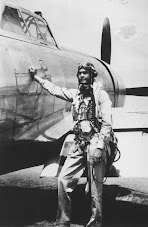


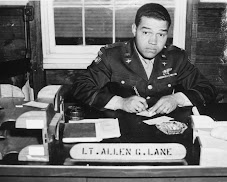
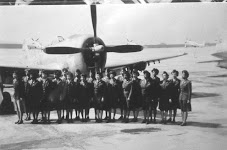
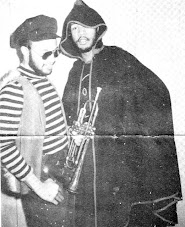





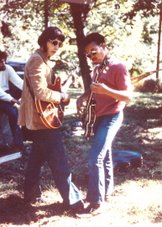
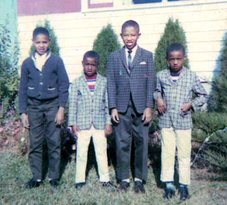
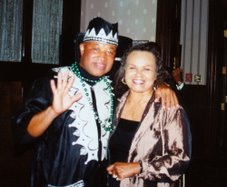

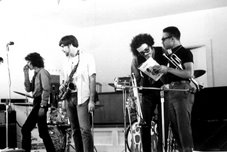
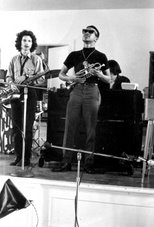

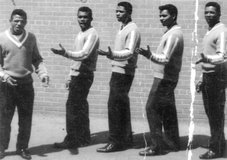



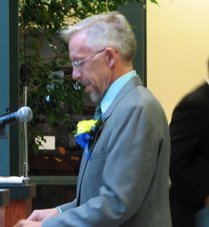
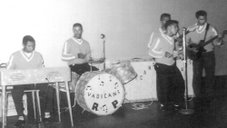
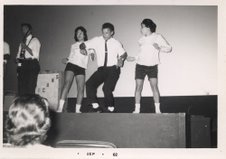


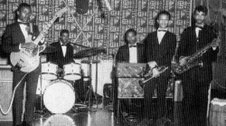
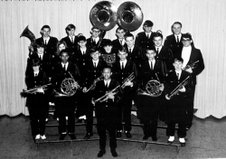
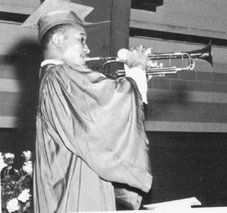
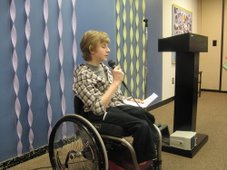
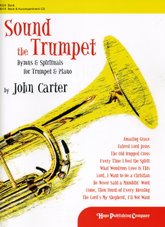
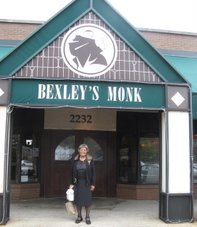
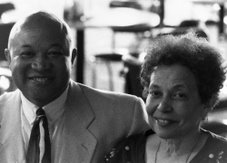
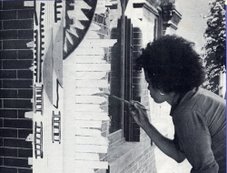

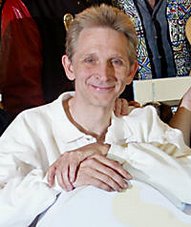
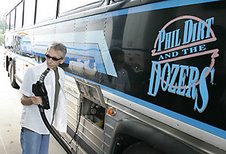
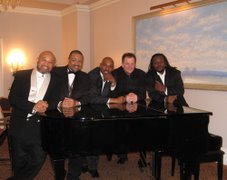
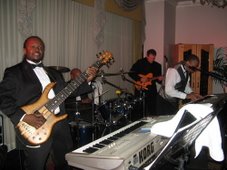
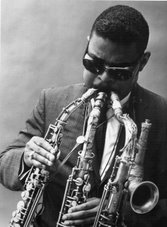
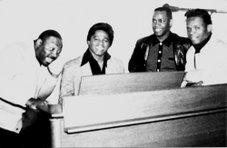

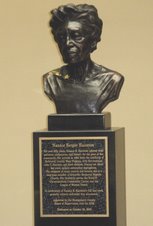
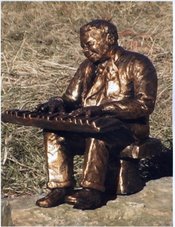
No comments:
Post a Comment